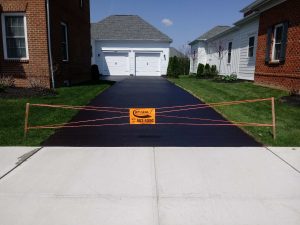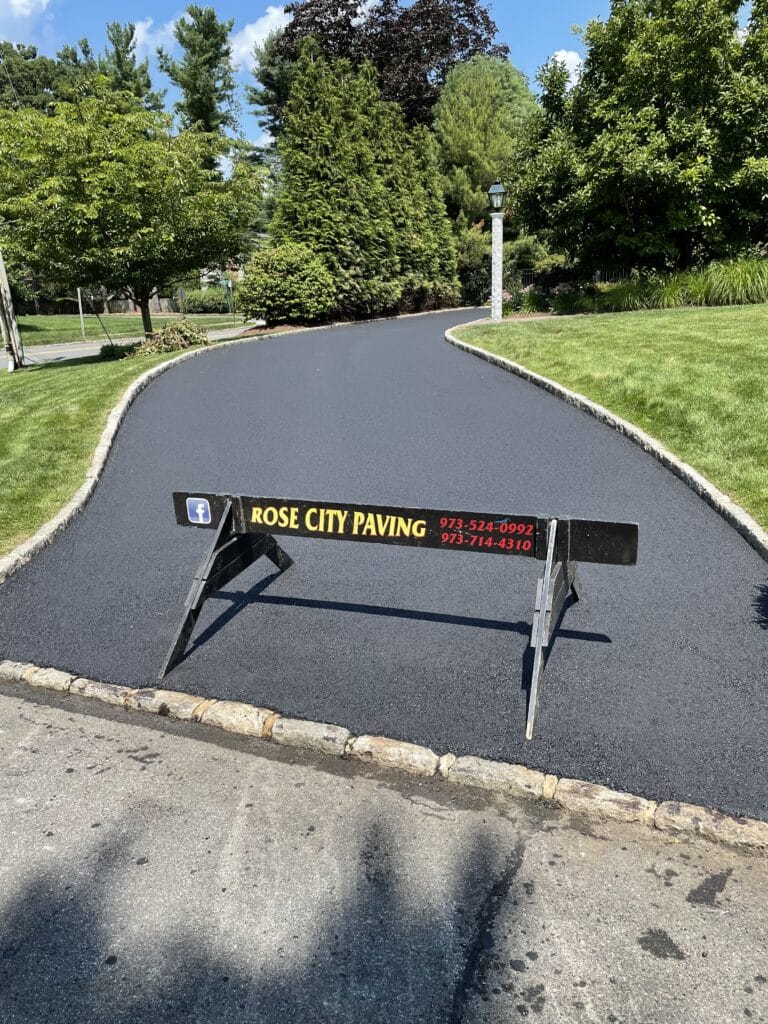Understanding Tilted Parking: How Asphalt Sealing Boosts Industrial Great Deals
Understanding Tilted Parking: How Asphalt Sealing Boosts Industrial Great Deals
Blog Article
Hot Mix Asphalt: A Lasting Solution for Sidewalk
Hot Mix Asphalt (HMA) has become a leading sustainable choice for sidewalk solutions, supplying a myriad of ecological benefits and cutting-edge innovations. Its capacity to minimize and reuse products energy consumption provides a compelling situation for its fostering in road building tasks. Additionally, the long-term performance and sturdiness of HMA make it a recommended alternative for framework development. As the demand for eco-friendly building practices grows, checking out the nuances of HMA's sustainability can offer beneficial insights right into the future of sidewalk solutions.
Environmental Benefits of Warm Mix Asphalt

Furthermore, Hot Mix Asphalt aids to minimize city warmth island impacts. Its dark shade takes in sunshine, decreasing the amount of heat mirrored back into the environment compared to lighter-colored sidewalks. This can reduce ambient temperatures in city locations, decreasing the need for a/c and inevitably lowering energy consumption.
Furthermore, Warm Mix Asphalt adds to enhanced stormwater management. Its permeable nature permits water to penetrate the sidewalk and reenergize groundwater supplies, reducing drainage and the danger of flooding. These ecological benefits make Hot Mix Asphalt a lasting selection for paving freeways and roadways.
Power Performance in HMA Production
Is power performance an essential variable in the production of Hot Mix Asphalt (HMA)? Definitely. Power plays a substantial role in the manufacturing of HMA, influencing both price and ecological sustainability. One key aspect of power performance in HMA production is using warm mix asphalt (WMA) innovations (regrading). WMA enables the mixing and placement of asphalt at reduced temperature levels compared to conventional hot mix asphalt, leading to reduced power consumption during production. This procedure not only decreases gas usage yet also lowers greenhouse gas discharges, making it an extra eco-friendly option.
Moreover, developments in plant technologies have actually caused even more energy-efficient HMA manufacturing processes. Modern plants are developed with functions like recycled asphalt sidewalk (RAP) processing abilities, effective heater systems, and enhanced insulation, all adding to power cost savings. By enhancing power usage in HMA manufacturing, the industry can lower its carbon footprint while maintaining top quality pavement products. Energy efficiency is, consequently, an essential consideration in ensuring the sustainability of Hot Mix Asphalt manufacturing.
Recyclability of Warm Mix Asphalt
The recyclability of Warm Mix Asphalt (HMA) is a critical element of its sustainability webpage and lasting environmental impact. HMA is one of one of the most recycled materials in the USA, with over 100 million lots of reclaimed asphalt pavement (RAP) being reused yearly in new sidewalk building and construction. Reusing HMA offers numerous environmental benefits, such as decreasing the requirement for virgin materials, decreasing power consumption during production, and decreasing the quantity of waste sent out to landfills.
The process of reusing HMA includes milling the existing pavement, crushing it right into smaller pieces, and blending it with new accumulation and asphalt binder to develop a recycled mix. In general, the recyclability of HMA plays a significant function in promoting sustainable techniques within the pavement industry.

Long-Term Performance of HMA
Asphalt sidewalks demonstrate resilience and strength over an extended period, mirroring the long-lasting performance of Warm Mix Asphalt (HMA) Additionally, innovations in HMA innovation, such as the usage of polymer-modified binders and warm mix asphalt, have actually additionally boosted the sturdiness and longevity of HMA pavements. By focusing on high quality building and construction and upkeep techniques, HMA continues to prove itself as a cost-effective and lasting option for durable pavement facilities.

HMA: Sturdiness and Sustainability
Demonstrating both toughness and sustainability, Hot Mix Asphalt (HMA) has actually become a cornerstone in the building of resilient pavement infrastructures - angled parking. HMA's resilience originates from its capability to withstand heavy lots, extreme climate you can try here condition, and high web traffic quantities, making it a dependable selection for roadways, highways, and airport paths. The make-up of HMA, which commonly consists of aggregates, binder, and filler, plays a critical role in improving its longevity and resistance to tear and put on
Furthermore, HMA's sustainability hinges on its recyclability and energy-efficient manufacturing process. The ability to recycle recovered asphalt pavement (RAP) in new HMA blends lowers the need for virgin products and decreases the ecological influence of pavement building and construction and upkeep. In addition, the power effectiveness of producing HMA hinges on its reduced blending temperature levels compared to various other pavement products, Source bring about decreased energy intake and greenhouse gas emissions.
Conclusion
To conclude, warm mix asphalt (HMA) uses a sustainable solution for sidewalk with its eco-friendly attributes. HMA's recyclability, energy efficiency in production, and lasting resilience make it an environment-friendly choice for roadway building. By conserving natural resources, decreasing waste, and reducing greenhouse gas emissions, HMA plays a vital duty in promoting sustainability in framework advancement. Its capacity to mitigate city heat island effects better highlights its value in creating durable and ecologically aware sidewalk systems.
HMA is one of the most recycled products in the United States, with over 100 million heaps of reclaimed asphalt sidewalk (RAP) being reused every year in brand-new sidewalk building and construction.The process of reusing HMA includes crushing the existing pavement, crushing it right into smaller pieces, and mixing it with new accumulation and asphalt binder to develop a recycled mix.Asphalt sidewalks demonstrate resilience and resilience over an extensive duration, showing the lasting performance of Hot Mix Asphalt (HMA) Additionally, advancements in HMA innovation, such as the usage of polymer-modified binders and cozy mix asphalt, have actually further enhanced the sturdiness and durability of HMA pavements. The ability to recycle redeemed asphalt pavement (RAP) in new HMA mixes minimizes the need for virgin materials and decreases the ecological impact of pavement building and maintenance.
Report this page